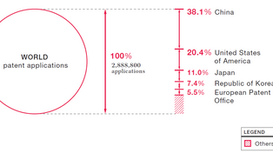Will the creation of works about the same theme by different authors lead to infringement?
- Admin
- May 16, 2023
- 1 min read

The law regarding copyright distinguishes between the protection of an idea and the protection of its expression. Themes, which are considered ideas, are not protected by copyright law. It is unreasonable to consider subsequent works that explore the same theme as infringing on the original work's copyright. For example, Shakespeare's "Romeo and Juliet" and the Chinese folktale "Liang Shanbo and Zhu Yingtai" both explore the theme of tragic love. Still, they are distinct and separate works created by different authors.
However, if a work is similar to another piece in terms of its expression, such as if paragraphs are copied from someone else's novel, it may be considered copyright infringement. In order to prove infringement, the right holder must first demonstrate that their work was completed prior to the alleged infringing work and that the infringer had the opportunity to access the original work. This satisfies the "access plus substantial similarity" requirement in many jurisdictions. Only after meeting these conditions can it be concluded that the similarity between the two works is due to plagiarism.





















Comentários